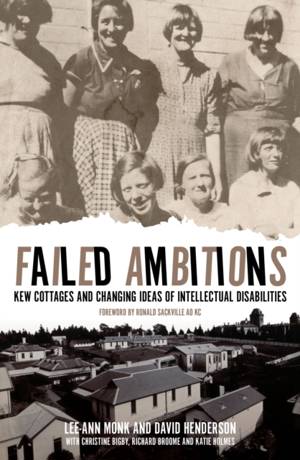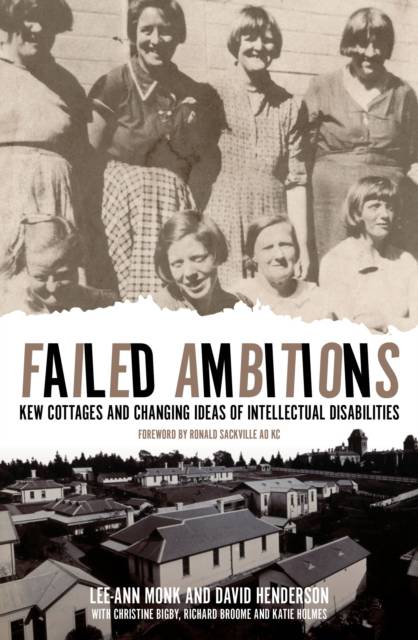
- Afhalen na 1 uur in een winkel met voorraad
- Gratis thuislevering in België vanaf € 30
- Ruim aanbod met 7 miljoen producten
- Afhalen na 1 uur in een winkel met voorraad
- Gratis thuislevering in België vanaf € 30
- Ruim aanbod met 7 miljoen producten
Zoeken
Failed Ambitions
Kew Cottages and Changing Ideas of Intellectual Disabilities
David Henderson, Lee-Ann Monk
Paperback | Engels
€ 43,45
+ 86 punten
Omschrijving
The history of Melbourne's Kew Children's Cottages (1887- 2008) is the challenging story of an institution that failed its residents - and it is vividly relevant to today, when the rights of people with disabilities are the subject of a royal commission. Those with an intellectual disability were historically the most vulnerable in our society and the least protected. Governments continually failed them by underdelivering on ambitious promises of reform. Failed Ambitions traces the development of Kew Cottages and the broader themes it gives rise to, including changing social ideas about intellectual disability. Australia saw a shift from a belief that those with intellectual disabilities were educatable to a view, which took hold in the 1920s, that the ' feebleminded' were unreclaimable and a menace to society. It took until the 1980s to formally recognise the rights of disabled peoples, and demanded dismantling institutions like Kew and associated ideas of disability. Throughout Kew Cottages' history, a cohort of journalists, parents, activists and residents fought for and finally gained greater rights and respect. This is a moving and powerful story that deserves to be read by all policymakers so we can avoid repeating the mistakes of the past.
Specificaties
Betrokkenen
- Auteur(s):
- Uitgeverij:
Inhoud
- Aantal bladzijden:
- 352
- Taal:
- Engels
Eigenschappen
- Productcode (EAN):
- 9781922633781
- Verschijningsdatum:
- 1/08/2023
- Uitvoering:
- Paperback
- Formaat:
- Trade paperback (VS)
- Afmetingen:
- 152 mm x 235 mm
- Gewicht:
- 553 g

Alleen bij Standaard Boekhandel
+ 86 punten op je klantenkaart van Standaard Boekhandel
Beoordelingen
We publiceren alleen reviews die voldoen aan de voorwaarden voor reviews. Bekijk onze voorwaarden voor reviews.











